
Prolific and hypnotic, the Mexican literature It was always marked by miscegenation or the influence of a Mexican Revolution that turned the journalistic genre into the predecessor of nationalist stories and authors. A slope that explodes in these best mexican books that you must read at least once in your life.
Pedro Páramo, by Juan Rulfo
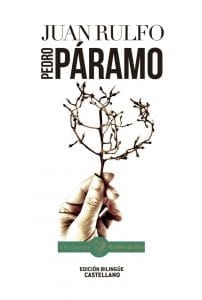
If there is a Mexican book, that is Pedro Páramo, one of the most universal stories of Latin American literature. Preceded by the no less recommended collection of stories The Burning Plain through which Juan Rulfo already introduced us to the fictitious town of Comala, Pedro Paramo evokes the mysticism of a desert Mexico, of mysterious voices and desolate streets in the center of which we find two stories: that of Juan Preciado, a young man who comes looking for his father Pedro Páramo, and that of the latter, a cacique corrupted by power. Published in 1955 and considered by many to be one of the first novels of the famous Latin American magical realism, Pedro Páramo is one of those essential books that everyone should read.
Like water for chocolate, by Laura Esquivel
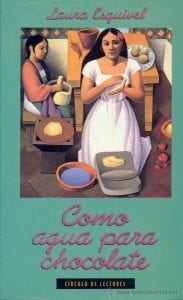
When everyone thought that the aforementioned magical realism had come to an end, the 80s ended with the publication of one of the great works of Mexican letters. Set in the state of Coahuila in the midst of the Mexican Revolution, the story tells of the romance between Tita, condemned to take care of her parents by dying like every benjamina daughter, and Pedro, who is granted the hand of Tita's sister, Rosaura. . All this, with Mexican stoves, flavors and dishes enlivening the honeys of romance. LIKE WATER FOR CHOCOLATE is in itself a recipe that plays with the necessary ingredients to be irresistible: a love story cooked over low heat, the perfect combination of everyday life and magic and a cherry in the form of an unforgettable outcome.
The Labyrinth of Solitude, by Octavio Paz
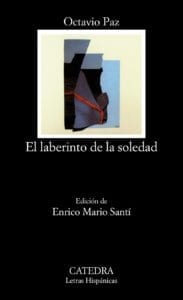
Nationalist literature as a consequence of the Mexican Revolution It encompasses different works in which the authors have tried to investigate the culture, essence and behavior of Mexicans. A good example is The Labyrinth of Solitude, masterpiece of Octavio Paz published in 1950 and formed by nine trials through which the writer delves into the historical episodes that triggered, according to him, a certain pessimistic character in Mexican society. Later editions of the work have included the well-known Postscript, a Peace conference at the University of Texas in 1969 based on the theory of the book, or Return to the Labyrinth of Solitude, an interview in which the thought around a Mexican who always "obeys the voice of the race."
Battles in the Desert, by José Emilio Pacheco
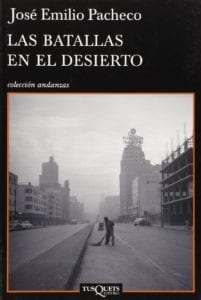
First published in the Saturday supplement in 1980, The battles in the desert It ended up being released as a short novel a year later. Set in 1967, Pacheco's work narrates the previous twenty years through the voice of Carlos, a young man from the Colonia Roma in Mexico City which becomes a perfect reflection of the Mexican society of the time, one that despite advancing and embracing modernization continued to drag fractures that would end up exploding in the not too distant future. One of the best mexican books when it comes to understanding the recent history of the North American country.
Conspiracy, by Juan José Arreola
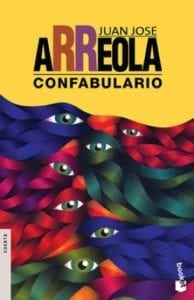
A great friend of Juan Rulfo and incessant editor of different literary publications of great success in the Mexico of the 50s and 60s, Arreola was one of the most prolific authors of his generation, in constant contact with the different avant-gardes and with a country in which he became one of its great voices. Confabular, published in 1952, is a set of stories through which the author delve into universal feelings such as love, frustration, or loneliness of modern man, at the same time that it supposes an entire purification exercise by including various texts by the writer that were condensed into a smaller number of pages.
The death of Artemio Cruz, by Carlos Fuentes
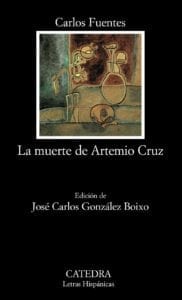
Despite not getting a Nobel Prize for Literature that he confirmed as delivered when he was received by Gabriel García Márquez in 1982, Fuentes is one of the great authors of Latin American letters, winner of other awards such as the Prince of Asturias or Rómulo Gallegos. A writer whose bibliography encompasses such powerful works as The death of Artemio Cruz, a novel that recalls the consequences of the Mexican Revolution in the popular collective and, specifically, of an Artemio Cruz who, from his deathbed, tells us his own history divided into phases that in turn marry the transition from traditional Mexico to a more modern one such as that of 1962. It was in that same year when The Death of Artemio Cruz was published until it became one of those books required when it comes to understanding the Mexican psychology of yesterday, today and tomorrow.
Guardian Devil, by Xavier Velasco

One of the most contemporary referent novels in Mexican literature was this Guardian devil winner of the Alfaguara Prize in 2003. The story, centered on another of the key episodes of the Mexican literature of the XXI century such as immigration, tells the journey of Violetta, a fifteen-year-old luxury lover who after stealing more than one hundred thousand dollars from her parents set out to cross the border to New York, a city where her excesses and loves define a new stage for the protagonist.
The House on Mango Street, by Sandra Cisneros
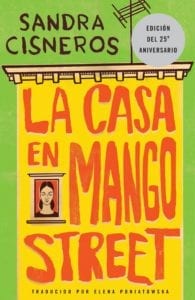
Despite a father who always rejected her dream of writing, Sandra Cisneros managed to capture part of the longings and regrets of a generation of Mexican immigrants in the United States as the perfect basis for her most famous work. Accompanied by various illustrations, The house on Mango Street was published in 1984 becoming a sales success and perfect X-ray of a Latino community in the suburbs of Chicago whose protagonist, the young Esperanza Cordero, becomes the promise of the American dream for a Latino population which over the last thirty years has spawned a whole universe of stories about the diaspora.
What are, in your opinion, the best Mexican books in history?
COULD YOU PUT THE YEAR OF PUBLICATION OF THE ARTICLE TO CITE IT?
Those below, Mariano Azuela
The murmur of the bees, by Sofía Segovia
The lost children by Valeria Luiselli